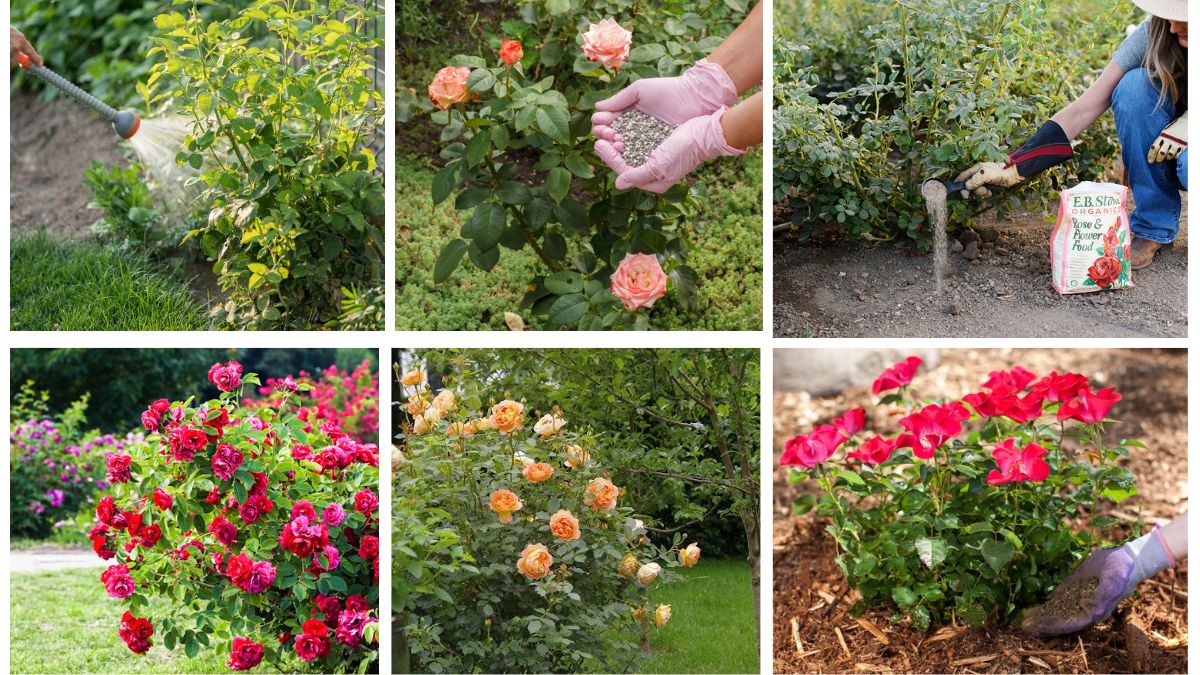Roses are prized for their stunning colors, captivating fragrance, and timeless beauty. But to achieve those vibrant, colorful blooms, proper fertilization is key. Feeding your rose plants the right nutrients at the right time can significantly boost their growth, flowering, and overall health. Whether you’re growing hybrid teas, floribundas, or climbers, these 7 expert-backed fertilization tips will help your roses thrive and burst into brilliant blooms all season long.
1. Start with a Balanced Fertilizer in Early Spring
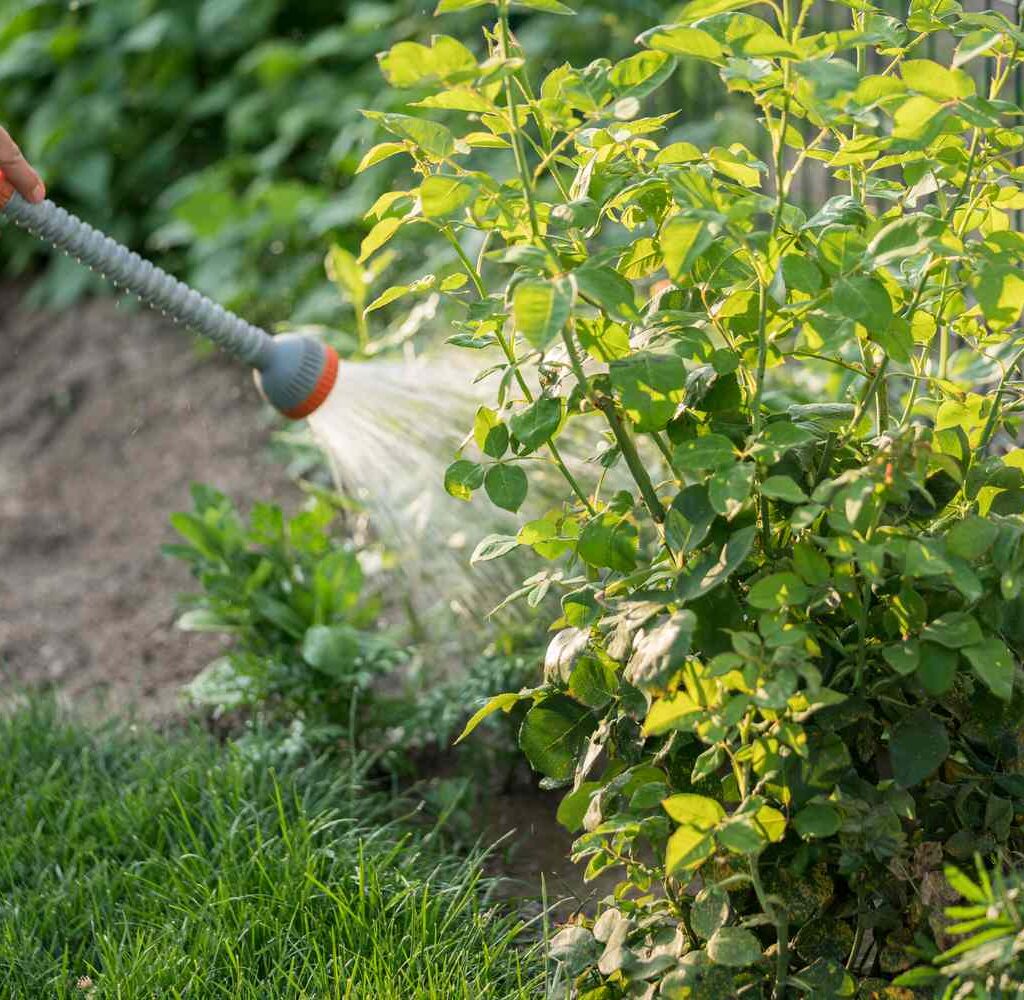
As soon as new leaves start to sprout in spring, apply a balanced fertilizer like a 10-10-10 (Nitrogen-Phosphorus-Potassium) or rose-specific blend. This helps your roses recover from dormancy and promotes strong root development and new growth. Apply it around the base of the plant and water thoroughly. This early nourishment sets the stage for a healthy blooming cycle and helps establish the plant’s structure before flowering begins.
2. Add Organic Compost or Manure for Long-Lasting Nutrition
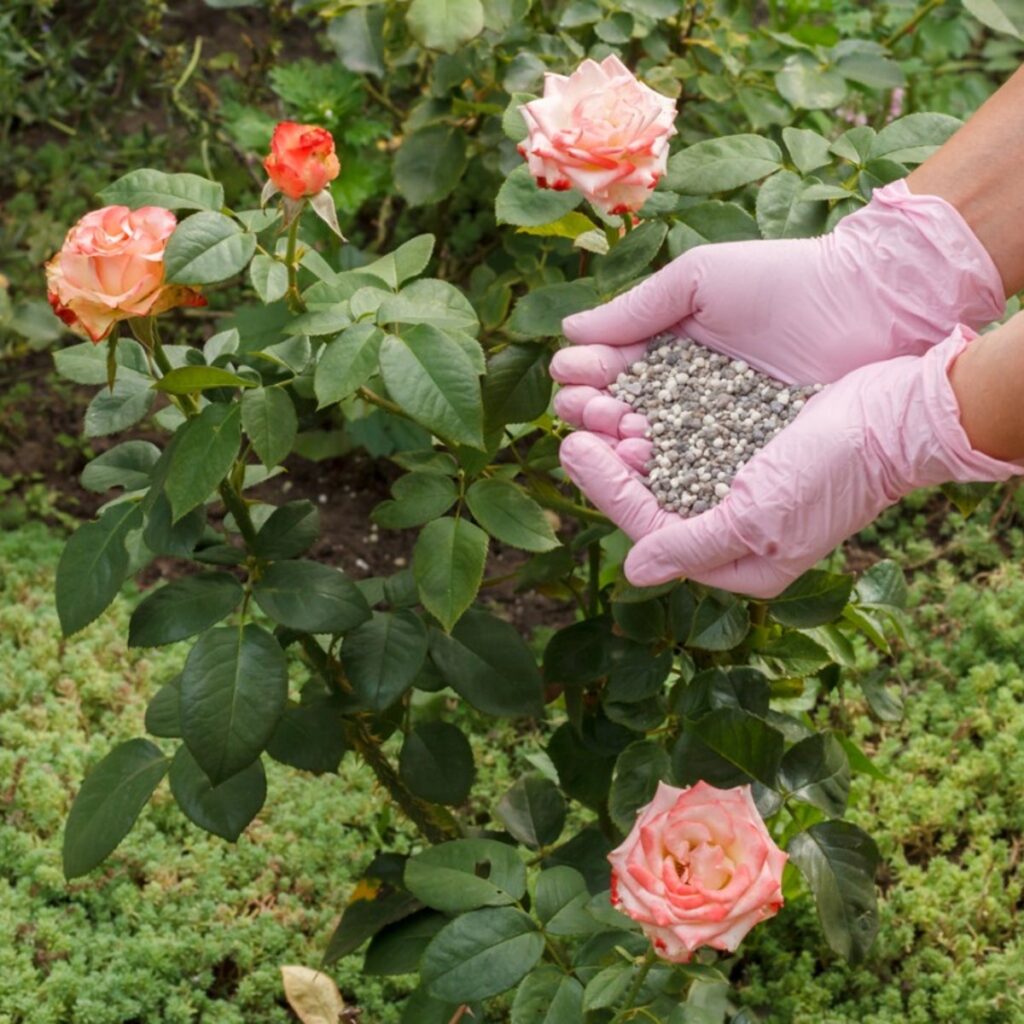
Roses love rich, well-fed soil. Adding compost or well-rotted manure around the base of the plants not only improves soil texture and water retention but also provides a slow release of essential nutrients. These organic materials promote microbial activity, which benefits root health and nutrient uptake. Incorporate a 2-3 inch layer into the soil in early spring and again in mid-summer to keep your roses blooming continuously.
3. Feed Monthly During the Growing Season

Roses are heavy feeders, especially during the peak blooming months. Fertilize once a month from spring through mid-summer using a water-soluble or granular fertilizer formulated for roses. Look for blends high in phosphorus (the middle number) to encourage larger, more colorful blooms. Always follow the label instructions to avoid over-fertilizing, which can harm your plants and lead to excessive foliage with few flowers.
4. Use Epsom Salt to Boost Blooming Power
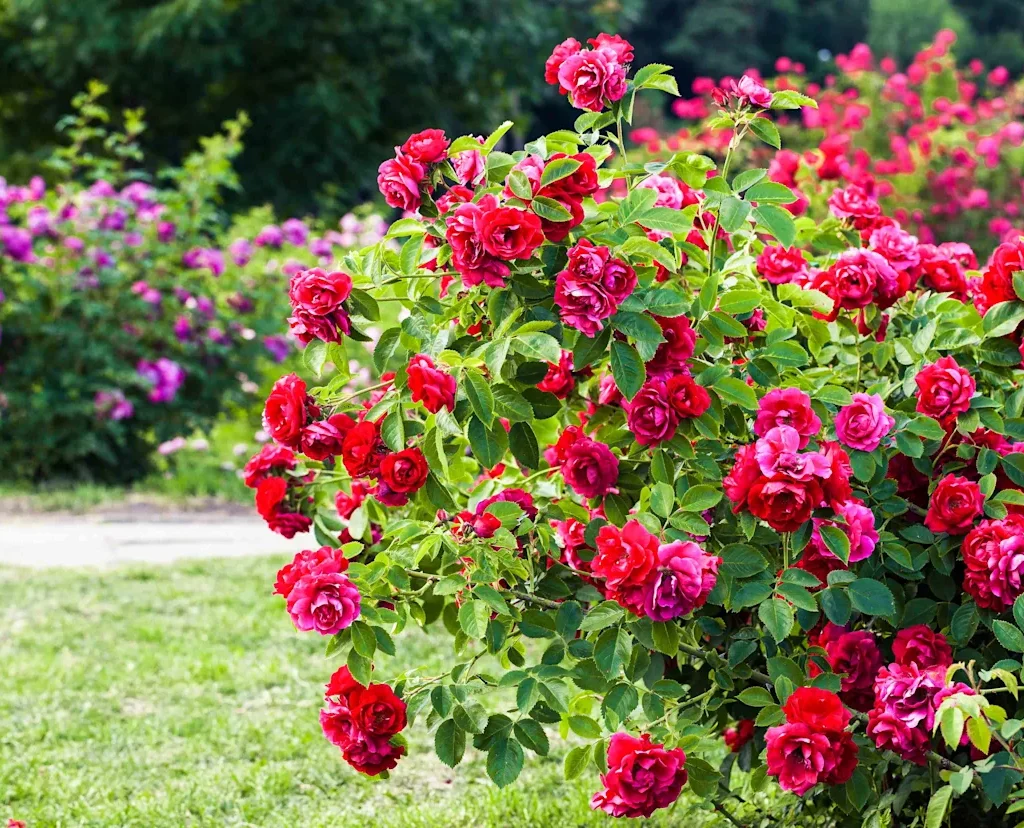
Epsom salt contains magnesium, an essential nutrient that helps roses produce more flowers and richer green leaves. Sprinkle 1 tablespoon of Epsom salt around each plant once a month or dissolve it in water and use as a foliar spray. This simple addition enhances flower color and stem strength, making your rose garden even more vibrant. It’s especially beneficial for varieties prone to magnesium deficiency.
5. Mulch to Retain Moisture and Support Nutrient Absorption

Mulching is not just about weed control—it also plays a vital role in supporting fertilization. A 2-3 inch layer of organic mulch (like wood chips or bark) around the rose base helps conserve moisture, maintain a consistent root temperature, and reduce nutrient leaching. As the mulch breaks down, it slowly feeds the soil, complementing your fertilization efforts and keeping your rose bed fertile throughout the growing season.
6. Stop Fertilizing Before the First Frost
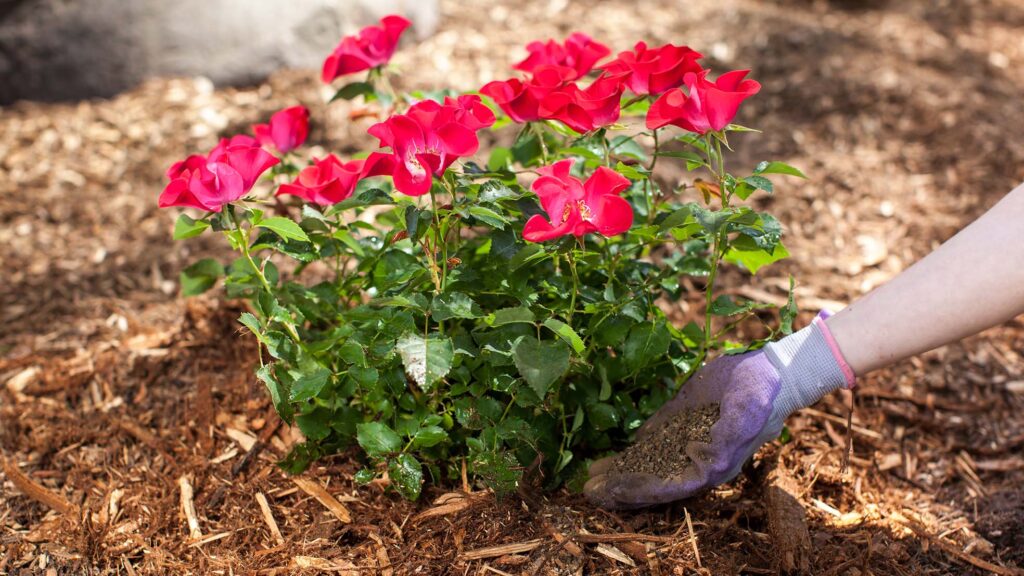
As summer wanes, it’s important to ease off fertilization. Feeding your roses too late into the season encourages soft, new growth that can be damaged by frost. Stop fertilizing about 6 to 8 weeks before your region’s first expected frost date. This allows the plant to slow down and harden off properly before winter, promoting stronger canes and better survival through dormancy.
7. Use Slow-Release Fertilizers for Low-Maintenance Feeding
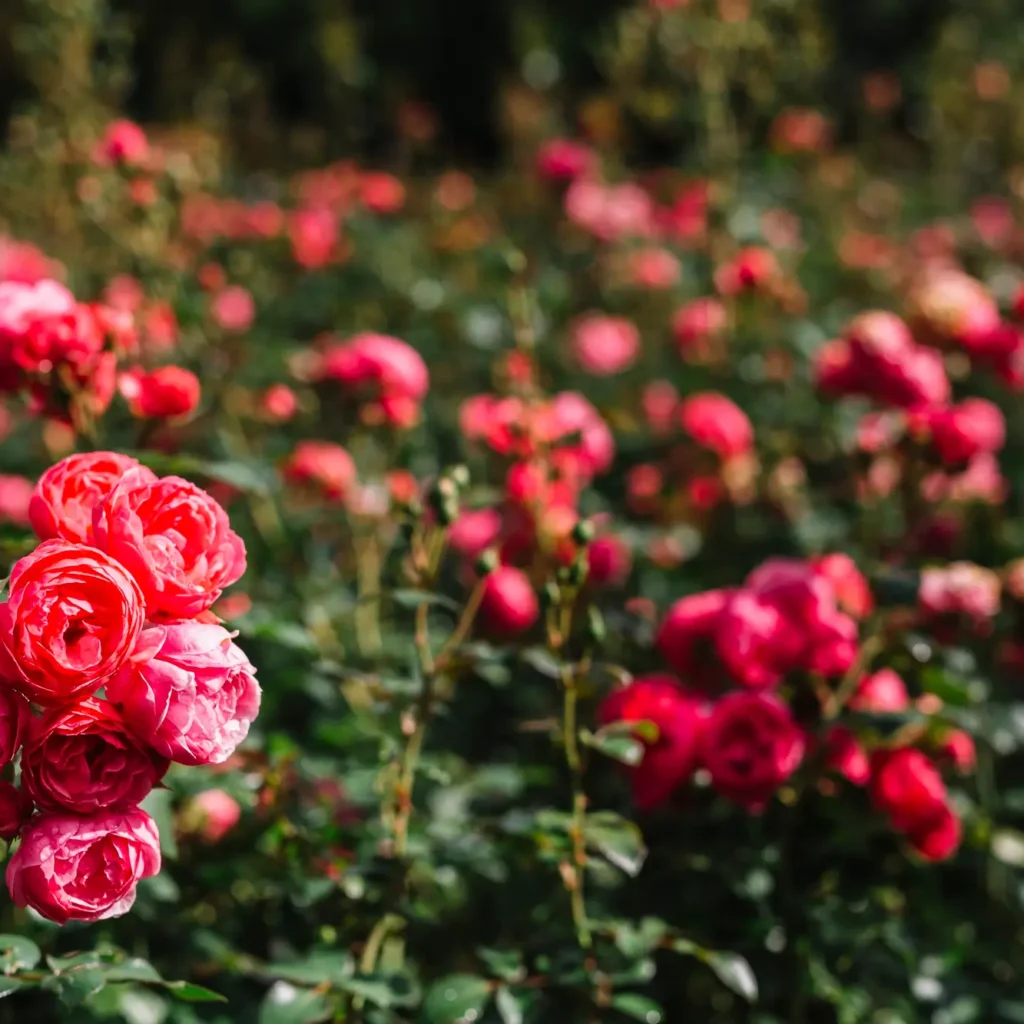
If you prefer a low-maintenance approach, slow-release fertilizers are a great option. These granules release nutrients gradually over time, providing consistent nourishment without the need for frequent applications. Apply them in early spring and replenish after heavy rains or about halfway through the season. This method ensures your roses receive steady feeding for continual blooming with minimal effort.
Conclusion
Proper fertilization is the secret to growing roses that are not only healthy but also bursting with brilliant, colorful blooms. By combining timely feeding, organic amendments, and smart techniques like mulching and slow-release options, you can enjoy a garden full of radiant roses from spring through fall. Follow these tips, and your rose bushes will reward you with show-stopping beauty season after season.
Ask ChatGPT
